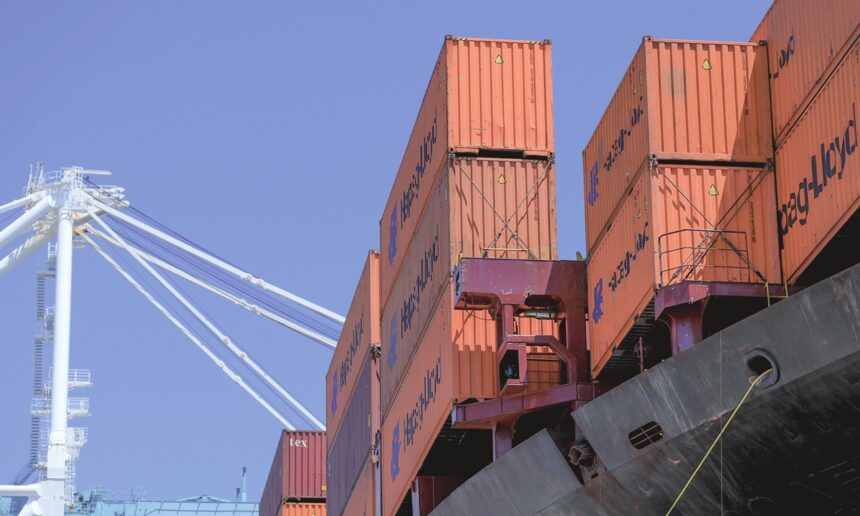Editor’s Note:
The US administration’s decision to temporarily pause tariffs for most countries while keeping the import levies targeted at Chinese goods has frustrated small American traders who do businesses with China. Analysts have already predicted that the tariffs will soon cause irreversible damage to American businesses. Beth Benike (Benike), from Minnesota, is one of those affected. She runs a small company called Busy Baby whose products are manufactured in China. “With the new tariffs, I have to pay an additional over $200,000 when the products get to the border before they can even come into the country. I don’t have that kind of money,” she told Global Times (GT) reporter Wang Wenwen in her Insight Talk show.
GT: How do you make a living from the business you are currently engaged in, and how will the tariffs affect you?
Benike: I invented a baby product and it’s a silicone placemat that you can suction to the table. It has little tethers that keep toys attached, so the babies can’t throw them on the ground. I manufacture the products in China and ship them to Minnesota where I live. I have a warehouse right outside my office where the products come in. People go to our website, they order the products on Amazon and we send the products out to them.
Currently, I have two containers of products at my factories in China that are produced and ready to be shipped to the US. They were supposed to be shipped earlier this month. However, with the new tariffs, I now have to pay an additional over $200,000 when the products get to the border before they can even come into the country. I don’t have that kind of money. For now, my factories are keeping my inventory safe until I can figure out what to do next. But what that means for me here in America is when I run out of inventory, in about two to three months, I will no longer have anything to sell. There’s no income to come into my business, which means I cannot pay my employees, myself, my loans, or my bills.
Right now, I am lucky to be able to sell in some big-box retail stores like Walmart and Target. However, I had to take out a big loan to buy the inventory for those big stores. And to get that loan, I had to use my house as collateral. If I don’t pay back the loan, I could lose my house.
GT: From the US government’s decision to impose the tariffs to the actual implementation of the tariffs, how did you feel?
Benike: Initially, when the first tariff announcements came out, we were not surprised. We had planned for it. Earlier, my son sat with me on the kitchen floor while I was crying, more times than a little boy should. This has been a devastating week for me and an emotional roller coaster, because I’m not a quitter. I am a fighter and I’m going to find a way through this. But there are still moments that hit me in my heart when I just want to quit. I just don’t feel any hope. Then I have to pick myself back up because I can’t teach my boys that we give up. We’re going to adapt, we’re going to overcome, we’re going to find a way. I think over 90 percent of the businesses in America are small businesses like mine, and it doesn’t feel like we were considered in any way whatsoever.
GT: Is it possible to manufacture these products in the US or in other countries? How much would the cost of these products increase if you choose to work with a manufacturer outside of China?
Benike: There are factories here in the US that do some production now. But it’s way out of reach for someone like me to be able to do that. If I produce in the US, my costs would be more than double for my consumers. My main product, the Busy Baby Mat, costs $30 for a US customer. That would be at least $60, probably closer to $80, if I produce it in the US.
GT: What harm do you think will come to American consumers if they lose access to Chinese manufacturing?
Benike: Our shelves will be empty. We will have less selection, and there are going to be essential products that we use in our daily lives that will completely go away. It’s unreasonable to think that we can just move manufacturing to the US and have all of these goods that we consume in America made here. It’s not possible. We don’t have the natural resources to have the materials to make these things, we don’t have the infrastructure, we don’t have the expertise. It will be devastating for America if that happens.
GT: Under the current circumstances, do you think your business can sustain in the long run? What are your plans for the future?
Benike: At this rate, I cannot continue to sell in America. I’m fortunate that there are babies everywhere. There are babies all over the world and they’re being born every day. I have spent seven years validating that I have a great product that makes life easier for new moms and dads. My plan now is to figure out how to sell my products in other countries, because I can sell my products to Australia and Europe. Maybe parents in China would enjoy my products as well. That’s something new. I have to learn and figure out how to do, but I refuse to let this crush me.
The policy changes every 24 to 36 hours. It’s very frustrating. Even on April 11, a new policy came out that exempts cellphones and computers from the tariffs. I don’t have any control of it, and it’s very unpredictable, so the best thing I can do is find other ways to move forward with my business that don’t rely on the US market.
GT: From a long-term perspective, as tariffs lead to bankruptcies of small and medium-sized business owners in the US and increase living costs for the people, do you think the US government could learn a lesson from this?
Benike: My husband is a farmer. We grow crops, we grow corn and soybeans. And here in Minnesota, we have great soil, we have smart farmers, and we have good equipment. That’s what we’re good at. A lot of our crops go to Asia, as farming is not the best in Asia. Just like China is amazing at manufacturing, we’re good at farming. We could trade the things that we’re good at, and we should do that freely. We should support each other in the things we’re good at.
Many Americans are just uninformed right now. They hear people telling them: “We’re going to make America great again,” “we’re going to bring manufacturing here.” That’s a great goal. People want that. But I don’t think people understand what that’s actually going to take, and that we can’t just do it in the blink of an eye.













